Novels Featuring Indian Characters: Introduction
Dive into a world where stories pulse with the heartbeat of India’s indigenous cultures. These novels, rich with vivid characters and powerful narratives, bring to life the struggles, triumphs, and resilience of tribal communities across the subcontinent. From the lush forests of Northeast India to the arid plains of Central India, these tales weave history, identity, and human spirit into unforgettable journeys. Whether you’re a literature lover or simply curious about India’s diverse heritage, these books will captivate your imagination and linger in your heart.
In this article, we’ve curated a list of 10 gripping novels that center indigenous Indian characters, each offering a unique lens into their lives. Expect stories that challenge stereotypes, celebrate cultural richness, and explore universal themes of love, loss, and belonging. Let’s embark on this literary adventure.
Why Indigenous Stories Matter in Indian Literature
India’s indigenous communities, often referred to as Adivasis or Scheduled Tribes, make up over 8% of the country’s population, yet their voices are frequently underrepresented in mainstream narratives. These novels amplify their stories, shedding light on their deep connection to land, tradition, and identity while confronting issues like displacement, exploitation, and cultural erasure. Through compelling characters, these books invite readers to see the world through the eyes of those who have long been marginalized.
Reading these novels isn’t just about entertainment—it’s about understanding the soul of India’s diverse tapestry. Each story offers a chance to connect with characters who defy expectations and challenge us to rethink our assumptions.
What Makes These Novels Stand Out?
These novels stand out for their authenticity, emotional depth, and ability to transport readers into the heart of indigenous experiences. They blend rich storytelling with cultural nuance, often drawing from real-world issues like land rights, colonial legacies, and modern-day struggles. Whether it’s a tale of resistance or a quiet exploration of identity, these books leave a lasting impact.
Voices from the Margins: Unheard Stories in The Adivasi Will Not Dance (Hansda Sowvendra Shekhar)
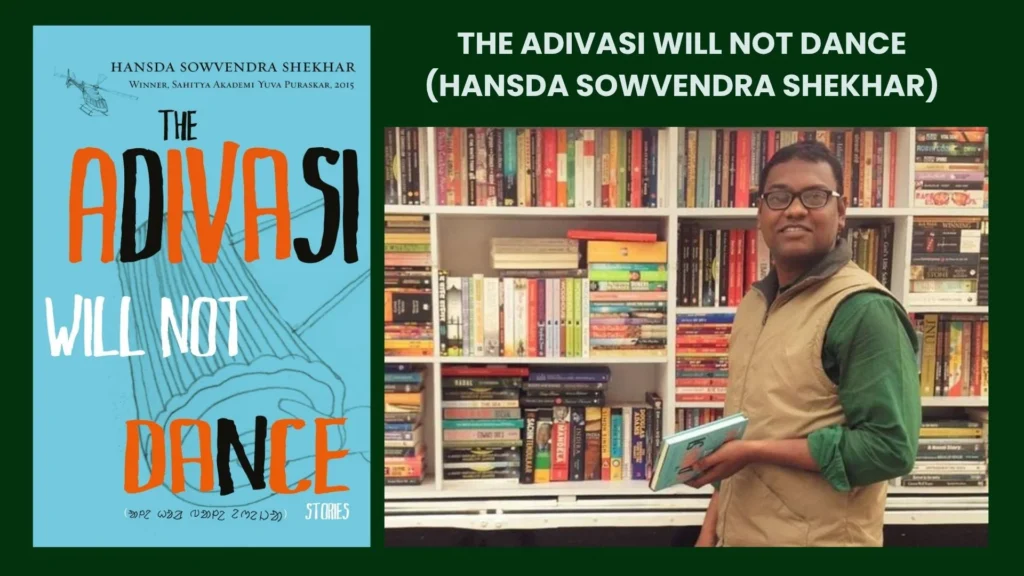
Hansda Sowvendra Shekhar’s collection of short stories is a raw, unflinching look at the lives of the Santhal people in Jharkhand. The title story follows Mangal Murmu, a talented musician whose refusal to perform for exploitative elites becomes an act of defiance. Shekhar, a Santhal himself, writes with a sharp, authentic voice, blending humor and heartbreak to expose the harsh realities of marginalization.
The characters in this book are unforgettable for their courage and complexity. From a young girl navigating love in a rigid society to a community resisting corporate greed, each story feels like a rebellion against silence. Because of its honest criticism of structural injustice and its realistic depiction of Adivasi life, this book is a must-read.
Why You’ll Love It: Shekhar’s storytelling is both poetic and grounded, making you feel the weight of every choice his characters make.
Cracking the Facade of Family: The Enigmatic World of The Illicit Happiness of Other People (Manu Joseph)
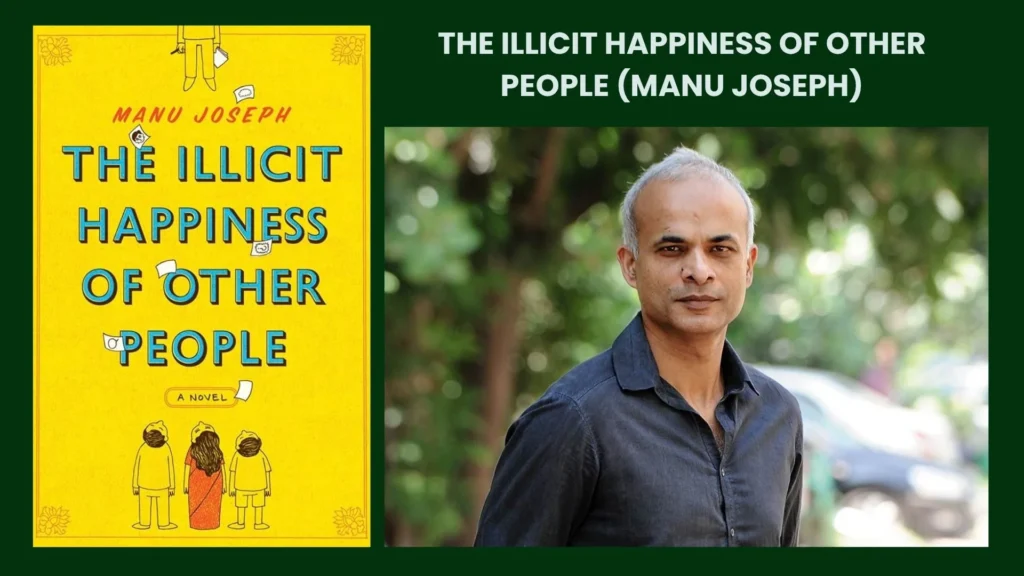
Set in Chennai, this novel by Manu Joseph isn’t exclusively about indigenous characters but features a compelling Adivasi character, Unni Chacko, whose mysterious death drives the narrative. Unni’s outsider perspective as a tribal boy in an urban setting adds layers to this darkly humorous exploration of family, mental health, and societal norms.
Joseph’s sharp wit and keen observations make this novel a gripping read. Unni’s indigenous identity subtly shapes his worldview, offering a fresh lens on urban India’s complexities. The book’s blend of mystery and social commentary keeps you hooked until the final page.
Why You’ll Love It: It’s a thought-provoking mix of humor, tragedy, and cultural insight that challenges you to see the world differently.
Mental Illness, Motherhood, and Memory: Inside Em and the Big Hoom (Jerry Pinto)
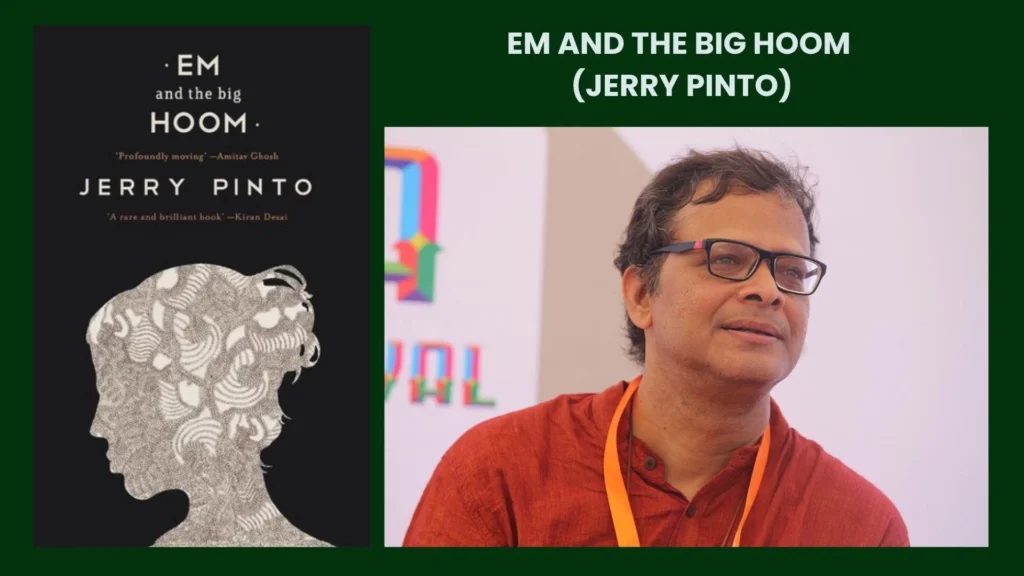
Jerry Pinto’s tender yet devastating novel centers on a Goan family, with the matriarch, Imelda (Em), offering a window into the Konkani tribal heritage. While the story focuses on mental illness and family dynamics, Em’s indigenous roots ground the narrative in a rich cultural context. Her larger-than-life personality and struggles with bipolar disorder make her unforgettable.
Pinto’s lyrical prose and deep empathy draw readers into the heart of this dysfunctional yet loving family. The novel’s exploration of identity, particularly through Em’s tribal background, adds depth to its emotional resonance.
Why You’ll Love It: Em’s vibrant character and Pinto’s storytelling create a deeply moving experience that lingers long after you close the book.
Exile, Loss, and Longing: Unpacking the Layers of The Inheritance of Loss (Kiran Desai)
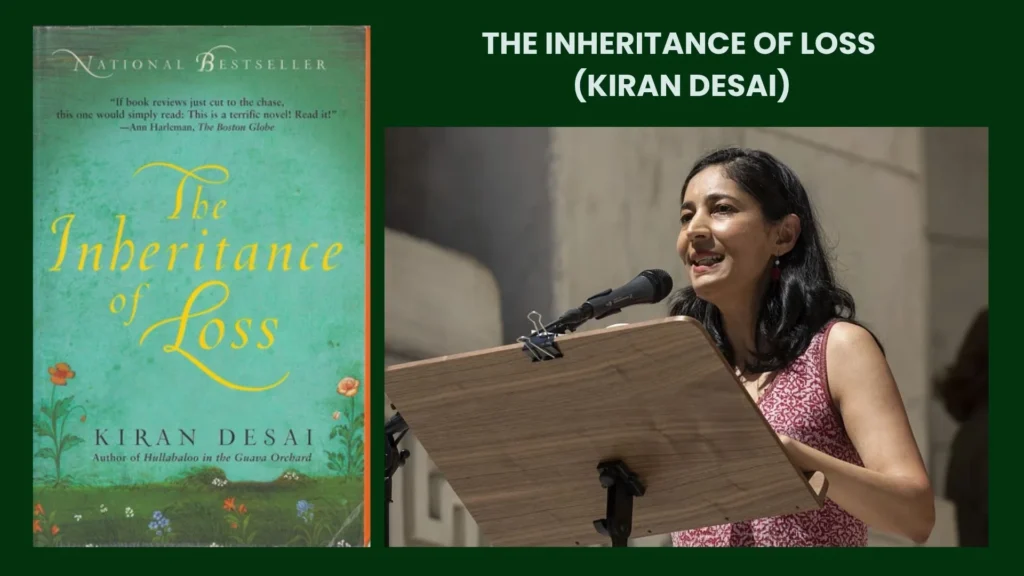
Several indigenous individuals from the Gorkha community in Northeast India are featured in Kiran Desai’s Booker Prize-winning novel, which tells a moving story of identity and relocation. Set in the misty hills of Kalimpong, the story follows Sai, a young girl, and her grandfather’s cook, whose son, Biju, grapples with life as an immigrant in America.
The Gorkha characters, particularly the cook and his community, bring to life the tensions of cultural identity and political unrest in the 1980s. Desai’s lush prose and nuanced portrayal of indigenous struggles make this novel a literary gem.
Why You’ll Love It: The vivid setting and complex characters offer a powerful exploration of belonging and loss.
Tides of Myth and Memory: Exploring The Hungry Tide (Amitav Ghosh)
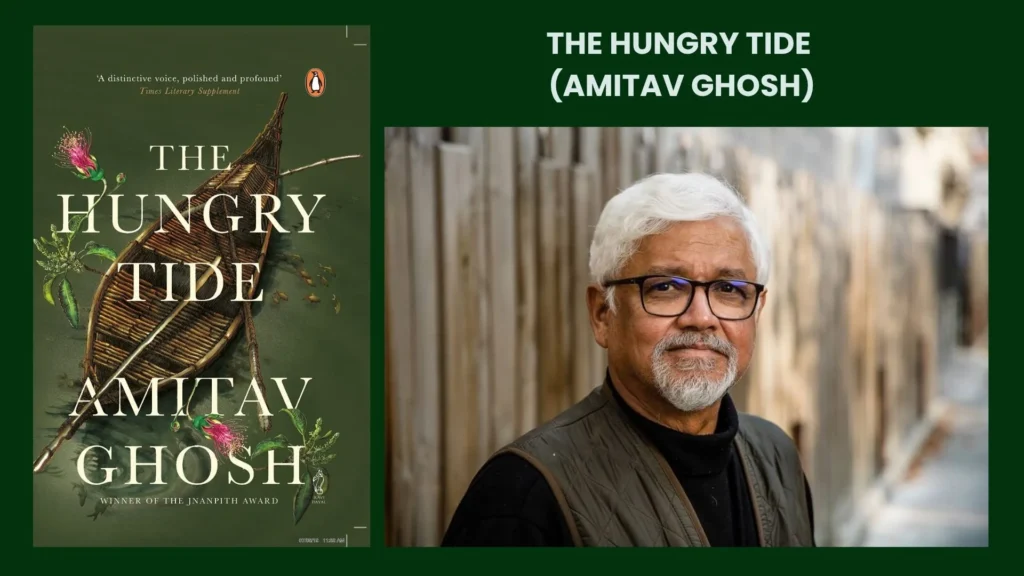
Amitav Ghosh’s masterpiece transports readers to the Sundarbans, where the lives of indigenous islanders intersect with those of outsiders. Fokir, a local fisherman from the Munda community, is the heart of this novel. His deep connection to the tides and his quiet strength make him unforgettable.
The novel explores themes of environmental conservation, cultural clashes, and survival. Ghosh’s rich descriptions of the Sundarbans and its people create a vivid backdrop for a story that’s both intimate and epic.
Why You’ll Love It: Fokir’s resilience and the novel’s ecological and cultural depth make it a captivating read.
From Darkness to Power: The Grit and Irony of The White Tiger (Aravind Adiga)

While primarily known for its critique of class divides, Aravind Adiga’s Booker Prize-winning novel features Balram Halwai, a character whose roots trace back to the marginalized communities of rural India. A compelling story of ambition and defiance, Balram’s journey takes him from a Bihar village to the metropolitan underbelly of Delhi.
Balram’s indigenous background informs his worldview, offering a sharp commentary on India’s social hierarchy. Adiga’s dark humor and unflinching honesty make this novel a modern classic.
Why You’ll Love It: Balram’s unforgettable voice and the novel’s bold storytelling keep you riveted from start to finish.
Art, Identity, and Post-War Silence: A Closer Look at When Blackbirds Sing (Martin Boyd)
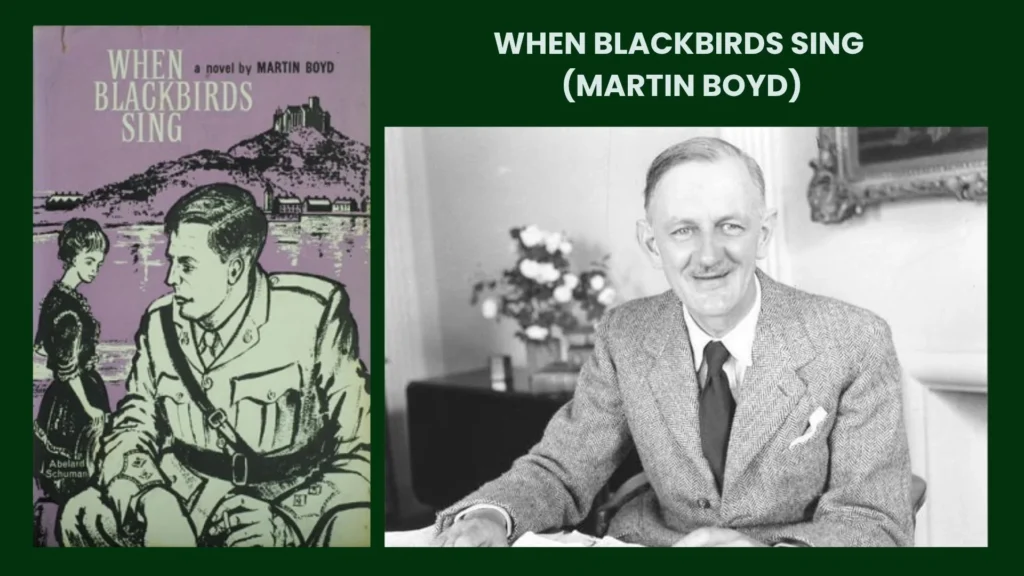
Though set in Australia, this novel by Martin Boyd includes a powerful depiction of an indigenous Indian character, Dominic Langton, whose heritage adds depth to the story of war and identity. Dominic’s journey as an outsider in a colonial world resonates with themes of displacement faced by India’s tribal communities.
Boyd’s elegant prose and exploration of cultural identity make this novel a unique addition to the list. It’s a hidden treasure that merits greater recognition.
Why You’ll Love It: The cross-cultural perspective and emotional depth offer a fresh take on indigenous experiences.
Fractured Innocence and Forbidden Love: The Tragedy in The God of Small Things (Arundhati Roy)
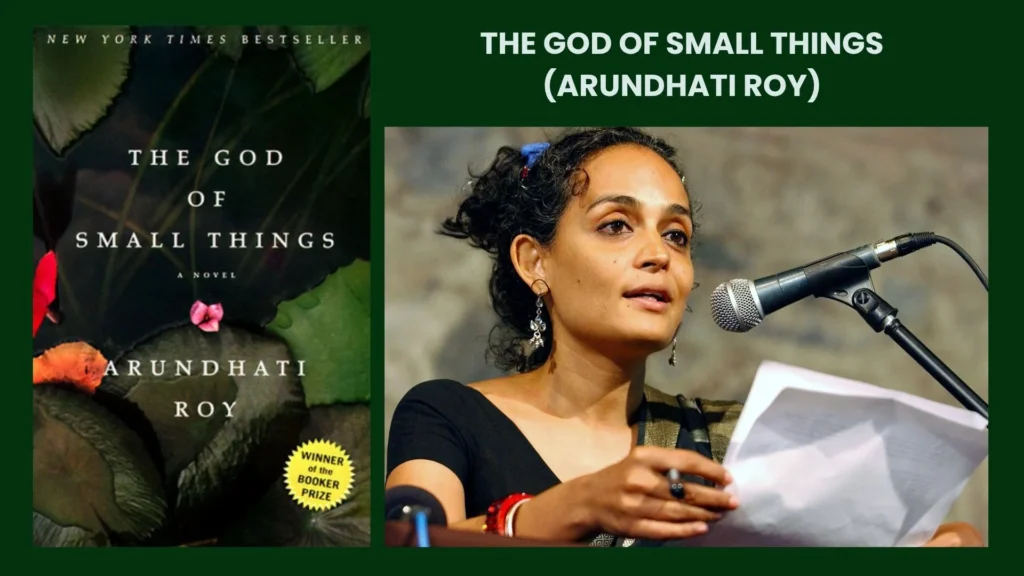
Arundhati Roy’s debut novel is a lyrical masterpiece that weaves the lives of a Syrian Christian family in Kerala with the region’s indigenous realities. Velutha, a Paravan (an oppressed caste with tribal roots), is a central character whose tragic love story drives the narrative.
Roy’s poetic prose and unflinching look at caste, love, and betrayal make this novel unforgettable. Velutha’s dignity and defiance in the face of injustice leave a lasting impression.
Why You’ll Love It: The lush storytelling and emotional weight make this a must-read for any literature lover.
Bureaucracy, Boredom, and Belonging: The Satirical Genius of English, August (Upamanyu Chatterjee)
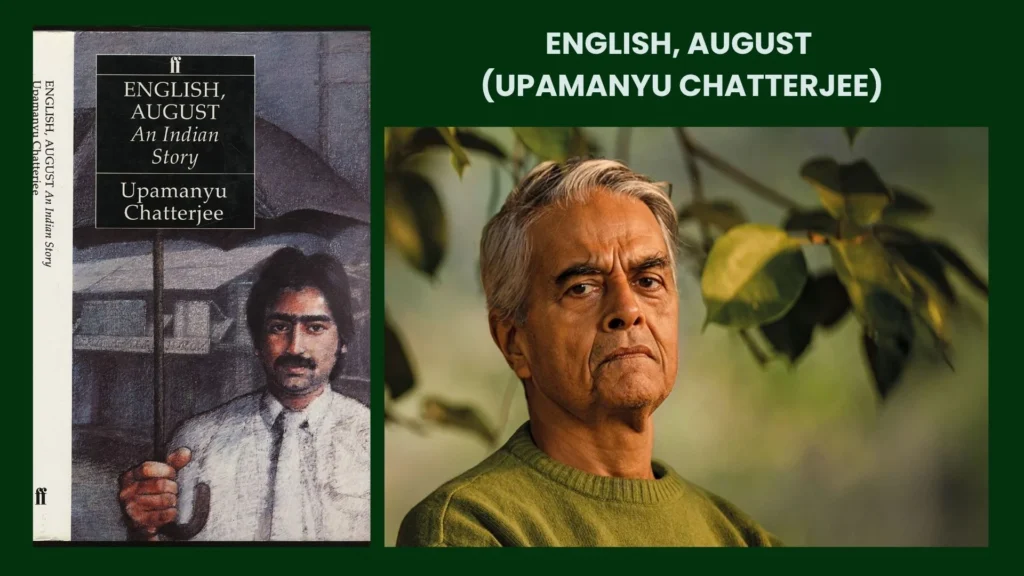
This humorous yet poignant novel follows Agastya Sen, a young bureaucrat posted in rural India, where he encounters indigenous communities. The tribal characters, though not the central focus, add depth to the novel’s exploration of urban-rural divides and cultural alienation.
Chatterjee’s witty prose and sharp observations make this a delightful yet thought-provoking read. The indigenous characters ground the story in the realities of rural India.
Why You’ll Love It: The blend of humor and insight offers a fresh perspective on India’s complexities.
Draupadi’s Destiny Rewritten: Feminism and Myth in The Palace of Illusions (Chitra Banerjee Divakaruni)
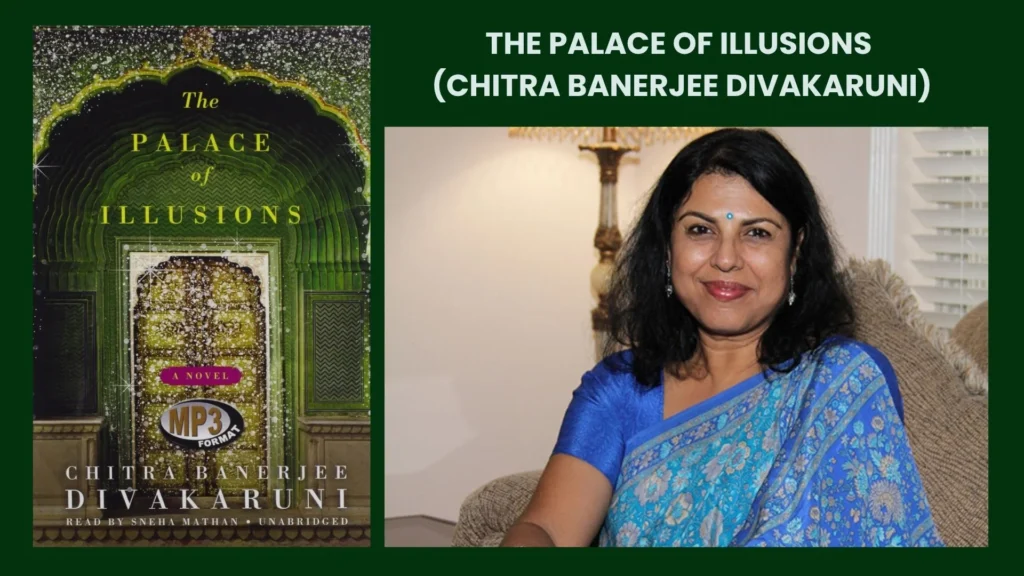
Draupadi’s retelling of the Mahabharata features striking depictions of native characters, including the tribes that live in the jungle and engage with the Pandavas. Divakaruni’s lyrical storytelling brings these characters to life, highlighting their wisdom and resilience.
The novel’s blend of mythology and human emotion makes it a captivating read. The indigenous characters add a layer of authenticity to this epic retelling.
Why You’ll Love It: Draupadi’s voice and the novel’s rich cultural tapestry make it a timeless read.
How to Choose Your Next Read
With so many incredible novels to choose from, where should you start If you enjoy unvarnished, modern tales, start with The Adivasi Will Not Dance. For a poetic, historical dive, try The God of Small Things. If you prefer a blend of humor and social commentary, The White Tiger is a great pick. Each novel offers a unique glimpse into the lives of indigenous Indian characters, ensuring there’s something for every reader.
Why These Stories Resonate Today
These novels aren’t just stories—they’re windows into the lives of communities often overlooked. In 2025, as India grapples with issues like environmental conservation, land rights, and cultural preservation, these books feel more relevant than ever. They remind us of the resilience and richness of indigenous cultures and the importance of amplifying their voices.

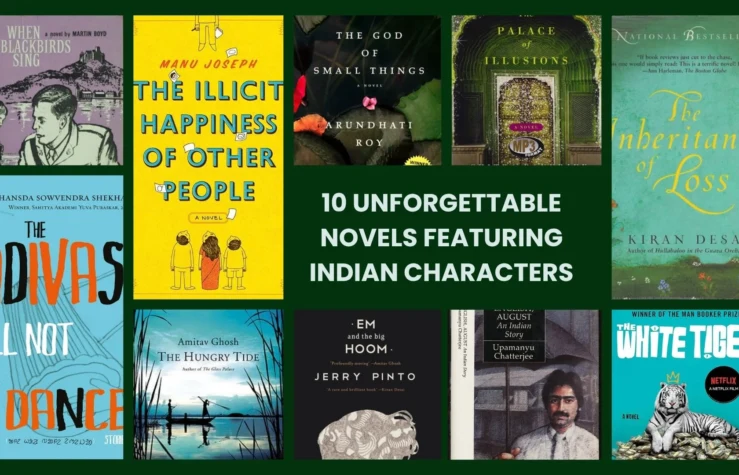

[…] At the center of utilitarian thought is the “greatest happiness principle,” which posits that an action is morally right if it tends to promote happiness and wrong if it tends to produce the opposite of happiness. Happiness, in this context, is understood as pleasure or the absence of pain, while unhappiness is defined as pain or the deprivation of pleasure. Bentham’s utilitarianism is characterized by its quantitative approach, in which moral actions are evaluated based on the amount of pleasure or pain they generate. This utilitarian calculation is a core aspect of Bentham’s original theory, which proposed that ethical decisions should seek to maximize the sum total of happiness for the greatest number of people. […]
[…] Fusion of Indigenous and Foreign Influences: The carvings reflect not only local craftsmanship but also stylistic elements influenced by Greco-Buddhist art from the Gandhara region. This fusion of artistic styles is evident in the naturalistic representations of human figures, animals, and intricate floral designs. The detailing of faces, drapery, and posture demonstrates the skill and adaptability of Indian sculptors in incorporating stylistic innovations without losing indigenous character. […]
[…] oversimplifies the complexities of journalism in India. The reality is far more nuanced, with both English and vernacular media playing pivotal roles in shaping public opinion. By creating this binary, the […]
[…] (Green): Represents noble and virtuous characters like gods and heroes. The base color green represents virtue and […]
[…] Loss of Confidence: People may feel vulnerable, fearing repeated attacks. […]
[…] the most iconic representations of the cultural heritage of Mewar. The paintings possess specific features that set them apart from other Indian miniature styles, making them instantly recognizable and highly revered. The characteristics of […]
[…] tragic events of January 1, 2025, are not isolated. In August 2022, Cetinje experienced a similar mass shooting incident, where ten people lost their lives. Both […]